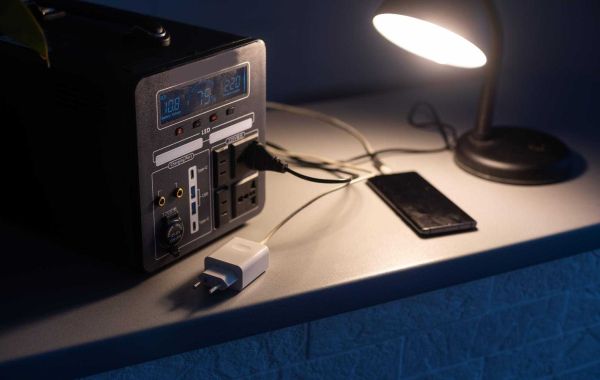Power outages can strike at any moment, leaving homeowners vulnerable to uncomfortable conditions, spoiled food, and disrupted daily routines. Quebec's harsh winters and unpredictable weather patterns make power outage preparedness particularly crucial for residents across the province. Understanding how to protect your home and family during electrical failures is essential for maintaining safety and comfort year-round.
Understanding Quebec's Power Grid Challenges
Quebec's electrical infrastructure faces unique challenges throughout the year. Ice storms, heavy snowfall, strong winds, and summer thunderstorms frequently impact power lines and electrical equipment. The province's vast territory and varying population densities mean that some areas experience longer restoration times than others. Rural communities often face extended outages due to their distance from major power stations and repair crews.
Historical data shows that the average Quebec household experiences several power interruptions annually, ranging from brief flickers to extended blackouts lasting days. The 1998 ice storm remains a stark reminder of how severe weather can cripple electrical systems for weeks, affecting millions of residents simultaneously.
Immediate Safety Measures During Outages
When power fails, your first priority should be ensuring family safety. Keep flashlights and battery-powered radios easily accessible in multiple locations throughout your home. Avoid using candles whenever possible, as they pose fire risks, especially when left unattended. Instead, invest in LED lanterns and headlamps that provide safer, longer-lasting illumination.
Check on elderly neighbors and family members who may be more vulnerable during outages. Ensure that anyone using medical equipment powered by electricity has backup plans in place. Keep your mobile devices charged and consider purchasing portable power banks to maintain communication capabilities during extended outages.
Food safety becomes critical within hours of losing power. Keep refrigerator and freezer doors closed to maintain cold temperatures as long as possible. A full freezer can keep food safely frozen for approximately 48 hours, while a half-full freezer maintains safe temperatures for about 24 hours. Monitor food temperatures with a thermometer and discard anything that reaches unsafe levels.
Long-term Preparedness Strategies
Creating a comprehensive emergency kit should be every homeowner's priority. Include non-perishable food items, bottled water, first aid supplies, medications, and important documents in waterproof containers. Store enough supplies to sustain your family for at least 72 hours, though experts recommend preparing for up to one week of self-sufficiency.
Water storage is particularly important, as electric pumps may not function during outages. Store one gallon of water per person per day, including water for pets. Consider purchasing water purification tablets or portable filtration systems as backup measures.
Heating alternatives become life-saving during winter outages. Ensure your fireplace is clean and functioning properly if you have one. Keep extra blankets, warm clothing, and sleeping bags readily available. Never use outdoor heating equipment indoors, as this creates serious carbon monoxide risks.
Backup Power Solutions
Many Quebec homeowners are discovering the benefits of backup power systems to maintain essential home functions during outages. Generac residential generators have become increasingly popular due to their reliability and automatic operation capabilities. These systems can power critical appliances, heating systems, and lighting without requiring manual intervention.
Standby generators connect directly to your home's electrical system and natural gas or propane supply, automatically activating when power fails. This seamless transition ensures that essential systems continue operating, protecting your family's comfort and safety. Modern generators can power entire homes or selected circuits based on your specific needs and budget.
Portable generators offer more affordable alternatives but require manual setup and fuel management. When considering portable options, ensure proper ventilation and never operate generators indoors or in enclosed spaces. Carbon monoxide poisoning remains a serious risk associated with improper generator use.
Communication and Information Management
Staying informed during outages helps you make better decisions about safety and resource management. Battery-powered or hand-crank radios provide access to emergency broadcasts and weather updates. Many smartphones can receive emergency alerts even when cellular towers experience power issues.
Establish communication plans with family members who may be in different locations during outages. Designate an out-of-province contact person who can serve as a central communication point. Keep important phone numbers written down, as mobile devices may lose power or connectivity.
Social media platforms often provide real-time updates about outage restoration progress and emergency services. However, don't rely solely on digital communication methods, as internet infrastructure may also be affected during widespread outages.
Financial and Insurance Considerations
Power outages can result in significant financial losses through spoiled food, temporary accommodation costs, and potential property damage. Review your homeowner's insurance policy to understand what coverage exists for outage-related losses. Some policies include provisions for additional living expenses if your home becomes uninhabitable.
Document any losses with photographs and receipts for insurance claims. Keep important documents in waterproof containers and consider storing digital copies in cloud-based systems accessible from multiple devices.
Recovery and Restoration
After power returns, avoid immediately turning on all appliances simultaneously, as this can overload electrical systems and cause additional problems. Gradually restore normal electrical loads over several hours. Check that all safety systems, including smoke detectors and security systems, are functioning properly.
Take time to evaluate your preparedness performance and identify areas for improvement. Update emergency supplies, replace expired items, and consider additional backup power solutions based on your experience during the outage.
Proper preparation transforms potentially dangerous situations into manageable inconveniences, ensuring your family's safety and comfort during Quebec's unpredictable power interruptions.








